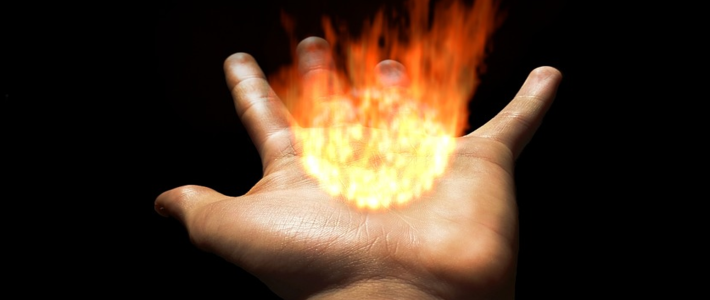Sports Betting Guide
The hot hand phenomenon
Have you ever heard the phrase "hot hand"? Do you know what it means and how it is related to betting? Find out in our today's betting guide.

Have you ever wondered what does it mean to have a "hot hand"? The term itself was originated from basketball, mainly describing a player who made a previous shot while attempting another one. Similar to basketball, in sports betting this term means having an on-going winning streak. Does something like this really exist?
When luck tends to be on your side
Several researchers tried to find a relationship between a winning streak and the probability of winning the consecutive bet.
The first draw of random bets selections showed a probability of winning the next bet of 48%. Just below the 50. After examining the following bet, there was already a difference. For the winning punter, the chances of landing the next bet were 49%, while the losing one had his/her chances cut to 47%. Seems like not a big deal.
The much bigger change came up with the following bet examination. Punters, who had two successful bets in a row, had a 57% chances to land the next one. Unfortunately for those without a winning streak, their chances were going even lower, with 45% to land the next bet.
The same pattern was followed with the consecutive bet. For "hot hand" bettors, who won three of their last bets, the chances of winning one more were 67%. As for the non-streak holders, the chances got capped at 45% to land the next wager.
Another probability increase was waiting for tipsters of five consecutive wins with 72% to land the next bet. The ones without a streak had a little better chances of winning their bets than before with 46%.
Finally, the smoking hot tipsters with six winning bets in a row had an incredible 75% of landing their next wager, compared to the 47% of non-steak bettors.
Nothing goes right when you're out of luck
The second part of the research focused on losing streaks. The initial probability of landing a bet after a loss was measured at 47%, with a 7% decrease for winning after two consecutive losses. By repeating the same procedure, researches found out an interesting pattern. For bettors, who lost three in a row the chances got cut even more, with winning possibility of just 32%. The same scenario was waiting for tipsters of four, five and six consecutively lost bets with the probability of winning the following bet in each case of 27%, 25% & 23% respectively.
Most common errors committed by punters.
The collected data clearly shows the relation of already won bets to winning the next one, proving the fact that more "luck" comes with more winnings. Is there anything else that influences your winning chances rather than your previous wins?
Another perspective
If you would ask any mathematician or statistician, they certainly tell you that every occurrence is independent of another one, which conflicts with the data found during the research.
In order to eliminate the doubts and provide additional support for the findings, another research was conducted, this time focusing on the odds of next bet.
The initially selected bets had mean odds of 7.72 (168/25). Everything became more clear after the first wager. Winners showed to be giving the preference to lower odds, with the mean cutting almost in half to 3.60 (13/5). The trend continued with the odds getting lower with every back-to-back win.
Exactly opposite was found for the losing bets. The odds were getting bigger after every loss. Just to compare the mean odds after the six winning streak bets were just 0.85, when after the same losing streak bettors were at 17.07 (1607/100).
After a thorough assessment, researchers found out that bettors by being aware of gambler's fallacy created their own luck. Winner tried to save their streak by opting to lower, safer odds.
That is exactly why they were more likely to win. On the other hand, losing bettors were somewhat riskier, expecting the win to cover the previous loses by selecting longer odds, therefore making them more likely to lose.
Does the "hot hand" really matter?
The following question was tried to be answered. Are the winning-steak tipsters more successful than non-streaky ones profit-wise? Based on the results found, surprisingly, the no steak having punters are slightly better marginally. To show you the real numbers, punters who had at least one winning streak of 6 bets had an average loss of £1.0078 per pound, while the ones without a streak were at £1.0077.
Despite you having a streak or not, please, be responsible with your betting. It is better to be hot-handed than hot-headed at the end of the day.

 Bovada
Bovada
 Copyright © 2010-2019 Bettingwell.com. Using any elements of this website is prohibited.
Copyright © 2010-2019 Bettingwell.com. Using any elements of this website is prohibited. 

Post new comment